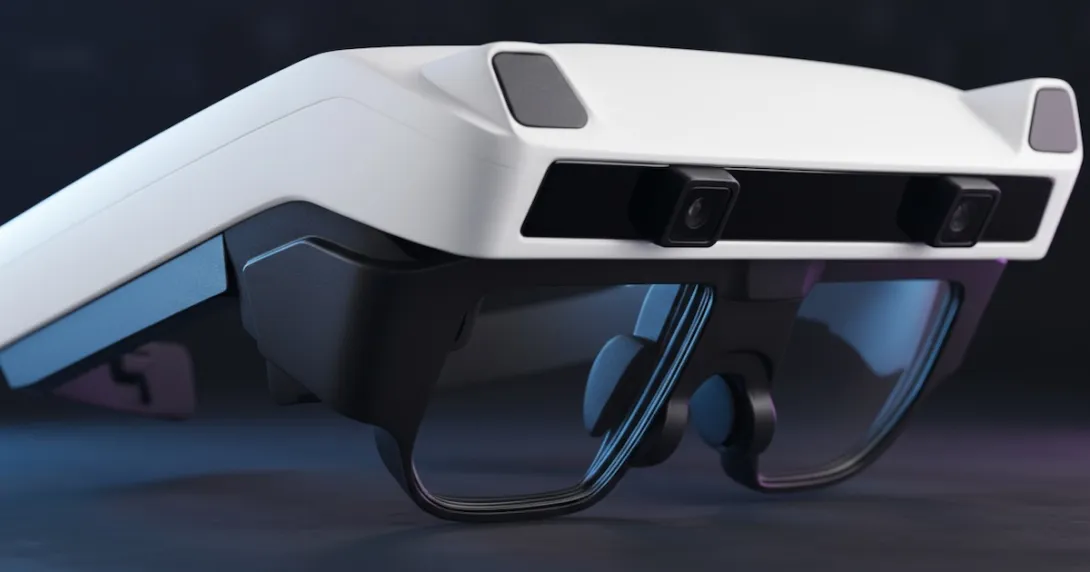
Photo courtesy of Snke OS GmbH
Snke OS GmbH announced it will unveil SnkeXR, medical-grade augmented reality glasses aimed at aiding AR technology adoption within clinical workflows.
The glasses are designed to help product development as well as research and development teams incorporate AR technology.
The company said the glasses can be used in various clinical practices, such as neurosurgery, orthopedics, OB/GYN, spine, interventional radiology, electrophysiology and more.
SnkeXR can also be used for procedure planning, clinical training and remote assistance.
The glasses include a built-in surgical tracker with 0.3mm marker post accuracy, medical-grade manufacturing and design, and a built-in depth camera that allows one to scan the surface anatomy or organ at 30 fps.
The device also has an integrated headlight; stereoscopic loupe magnification of up to 3.5x for operating on small structures or when precision is critical; a detachable battery that lasts up to six hours; and display transparency, projection angle and focal plane.
"The power of augmented reality to bring accuracy, efficiency and enhanced clinician experience to healthcare is clear, but legacy consumer AR glasses weren’t designed for use in the medical field," Nissan Elimelech, general manager of Snke XR and previously the founder and CEO of Augmedics, the maker of the Xvision AR navigation system for spine surgery, said in a statement.
"SnkeXR fills this gap with a medical-grade, open platform design that can be incorporated into medical devices for a wide range of clinical use cases."
THE LARGER TREND
Elimelech joined MobiHealthNews in June for its Emerging Technologies series, where he unveiled plans to develop SnkeXR, the first AR glasses specifically for healthcare, and discussed the process of developing augmented reality surgical navigation technology.
"Right now, there are dozens of medical device companies that are still using obsolete glasses or platforms for augmented reality that do not have any other solution," Elimelech told MobiHealthNews.
"What I did is, last year, I decided to address that problem, and together with a partner that I cannot disclose right now, we have formed a new company to develop an open platform, augmented reality glasses for medical applications, something very similar to the Magic Leap and the Microsoft HoloLens, but designed for medical applications."
He said that, unlike Augmedics, where an application was developed for specific purposes, his company was creating a platform that can be used by medical device companies, which allows them to instantly build their own applications using different technologies put into the glasses.
"We already have the glasses' first prototype ready. So, we are progressing very, very fast. The launch date of the glasses is expected in the middle of 2027. So, about two years from now, we are going to be ready for the product launch," Elimelech said.


